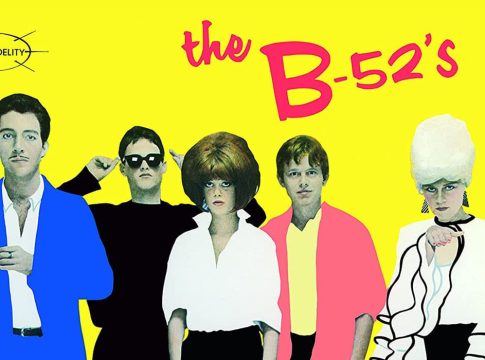The B-52’s: More Than Just Party Anthems
A Queer Legacy
When you think of the B-52’s, your mind likely jumps to the funky, whimsical beats of “Rock Lobster” and the sing-along classic “Love Shack.” But hold onto your sequined wigs, because the legacy of this iconic band runs much deeper than their tongue-in-cheek lyrics and retro style. As one of the most significant queer bands in music history, the B-52’s have not only shaped the pop landscape but have also crafted an endearing niche within the LGBTQ+ community.
Forming an Unlikely Crew
Originating from the artsy streets of Athens, Georgia, the B-52’s were a vibrant collective made up of guitarists Ricky Wilson and Keith Strickland, the dynamic vocalist Cindy Wilson, kooky Fred Schneider, and singer/keyboardist Kate Pierson. These musicians didn’t care one bit for mainstream trends; their focus was on laughter and creativity. With thrift store fashion and a flair for the absurd, they blended a rich sonic palette influenced by legends from James Brown to Yoko Ono. And just like that, their quirky world took off.
Camp Meets Queerness
What sets the B-52’s apart is their unique embrace of camp. Beneath the vibrant exterior and silly lyrics lies a profound exploration of identity and otherness, especially among LGBTQ+ listeners. Take “Wig” from their 1986 album Bouncing Off the Satellites—a seemingly silly ode to fake hair turns into a cheeky commentary on gender norms. It’s this blend of humor and poignancy that allows the B-52’s to resonate across generations.
Mastering the Art of Emotion
Their self-titled debut from 1979 is often heralded as one of the best albums ever—not just for its catchy tunes but for its immersive universe. Imagine starting with radio signals leading into a surreal sci-fi landscape filled with punk influences. This album birthed classics like “Dance This Mess Around,” which juxtaposes heartfelt longing with catchy, silly lines, demonstrating the band’s ability to deliver depth beneath their quirky image.
Turning Tragedy into Triumph
The passing of Ricky Wilson in 1985 shook the band to its core, yet they rallied, channeling their grief into the vibrant Bouncing Off the Satellites. While infused with joy, tracks like “Ain’t It a Shame” reveal layers of sorrow that speak of lost love—evidence of their resilience.
The Commercial Comeback
Fast forward to 1989, and the B-52’s were riding high on the success of Cosmic Thing, featuring the mega-hit “Love Shack.” Here, they traded some of that avant-garde edge for mainstream appeal—a move that brought them massive global success. Sure, songs like “Roam” and “Channel Z” have their charm, but they also gloss over the complexities present in their earlier works.
A Vinyl Revival
With the recent release of The Warner and Reprise Years box set, fans can relish in nearly four decades of the B-52’s magic. This collection captures the essence of their journey, presenting everything from their groundbreaking queer anthems to their culture-shifting beats. It’s both a celebration and a reminder of the band’s important place within pop culture.
In Conclusion
The B-52’s didn’t just create catchy pop tunes; they birthed an era of playful experimentation that resonates with the queer community and beyond. With their signature blend of silliness and emotional depth, they’ve left an indelible mark on music history. So, dust off your dancing shoes and get ready to celebrate the enduring and fabulous legacy of the B-52’s—because, as they say, “It’s no great shake, and it’s no great shock,” but it sure is a whole lot of fun!

Covers viral stories, pop culture, and breaking celebrity news.
Bio: Jamie has a sharp eye for what’s buzzing online, tracking social media trends and entertainment headlines around the clock.

